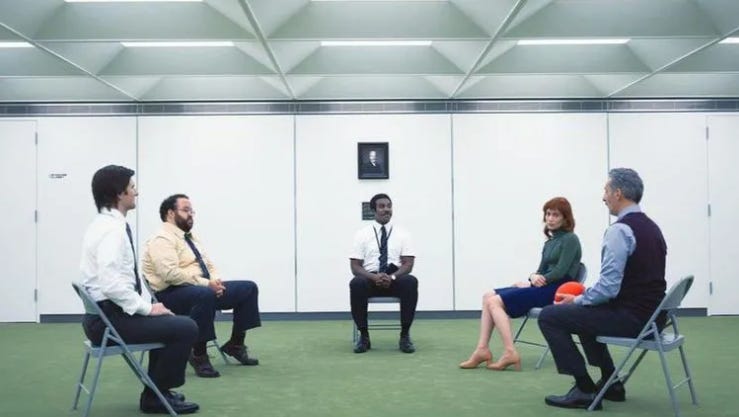Effortless Results
🦸🏻♀️Leaders are Not Super Heroes
Does any of this sound familiar?
Doing work your team should be doing because it would take too long to teach
Delegating work only to be frustrated that the work looks nothing like what you expected
Building processes *around* people
Putting up with an ongoing issue because you don’t have the time to confront the real issue
If this sounds familiar, congratulations! You are a human, in a leadership position, that’s stumbled as the best leaders in the world have stumbled. You made the mistake of thinking that being a good leader means you and your team must be perfect, to the point where you will do the work because YOU are the only person who can do it the “right way.”
I eventually worked my way through my perfectionist issues with the help of good mentors and friends but a book I read recently, Greg McKeown’s, Effortless would have also been very helpful.
This book would not have solved all of my problems but it would have forced me to reflect on my role. To ask myself: “How am I making this difficult? How can I make it easier?”
👫Making It Easier for Your Teams
I did not realize that my perfectionism was making it hard for my team on every level: I made it more difficult for my teams to learn, they did not always have the context they needed and processes were unnecessarily complex, which bogged down everyone’s day.
I learned over time and through observation that the best leaders remove obstacles, they make it easier to get the work done.
As leaders, in modern organizations where everyone thrives, we must confront the tough issues:
Fixing the root of the problem, which is often more time and resource-intensive but is better and more efficient in the long term
Taking the time to provide adequate context and transparency
Saying and living our values (personal or work values)
🎬 Action - Compounding Results
So, how can we make work life easier for our teams? How do we remove the obstacles? I believe the solution is to help our teams figure out effortless work. (Note: Many of these suggestions are from the book Effortless, I’ve adapted the advice for my audience and I encourage you to check out the source material)
🛑 Stop and reflect on these questions:
What if this could be easy? What would that look like? How am I making this harder than it needs to be?*
If you don’t think you have time for that, you’re probably experiencing cognitive overload. Take the time to stop and think. If you are constantly overwhelmed, you can’t help your team (put your oxygen mask on first!).
Next, focus on how you can produce compounding results. Compounding results are actions you can take that continue to produce over time. An example: you can complete the client presentation for your team but if you take 2-3 hours to teach them *how to* prepare the client presentation, that pays off twofold: the team can now prepare client presentations which frees up your time and they will likely take your teachings, improve upon them and produce even better results at the next client meeting.
What else? How about taking the time to “strike at the root” of the problem instead of clipping the branches? Think of an ongoing, frustrating problem, that both you and your team deal with on a regular basis. What is the real root of the problem? How could you resolve that problem? How much time would you free up if you did?
🌴Strike at the Root!!!
👩🏽🏫 Education
This week I’m enhancing my knowledge of DEI by starting a course from the University of South Florida on Diversity, Equity, and Inclusion. I’m very excited to start this course because it is my first formal education on DEI. Like many of you, I’ve read a lot of articles and participated in training but, for me, there is nothing like a college-type course that I can really sink my teeth into!
And in the entertainment space, I’m watching Severance on Apple TV. I guarantee after watching 3-4 episodes of this show, you will think about our collective corporate rituals in a very different way.
“What is a problem that irritates me repeatedly? What is the total cost of managing that over several years? What is the next step I can take immediately, in a few minutes, to move toward solving it?” - Greg McKeown, Effortless


